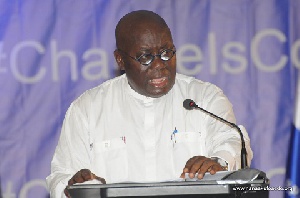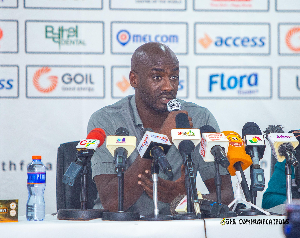By Cletus D. Kuunifaa
I used to have a political preference. I have tasted both political menus; I am now engaged in evidence research for the Transformation Management Consultancy Group for findings to inform policy formulation and implementation. I’m Ghana centered and objectively opinionated.
All things considered, if, some Ghanaians think that the NPP Presidential candidate, Nana Akuffo Addo is bloviating about the ‘One Village, One Dam’ concept proposition, then, they should reassess their thoughts about this visionary concept. This is no bloviation at all!
The candidate is being real about this vision. To my mind, even if he does not get the nod for the Jubilee House, come December, to consider this policy for implementation, it will not be out of place for the incumbent to take a leaf from such a proposition. We cannot afford any longer to sacrifice development on entrenched party positions. It constitutes a disservice to the development agenda of Ghana.
Since going public with this idea, some arguments have been advanced against the concept. People have questioned the locus standi of this visionary idea.
Literally speaking, they question as to whether it could be a sound policy. Dissenters have argued that not all villages have river that flow with sufficient velocity to enable this to happen. Others think about cost to be a limiting factor as to who to foot the bill. Yet, some people have argued against relating to capacity and management. But, most quintessentially, how will the infrastructure fit into our energy mix?
No one is suggesting that such an idea will be a low hanging fruit to pluck. Of course, it will require sacrifice and prioritization of needs to get this done. His proposition needs further discussion for input to be incorporated from civil society and stakeholders before a determination is made as to whether to scuttle the idea to a “One district, One dam” proposition or beyond.
Be that as it may, the good thing is that besides the cost benefit analysis, at least, we are debating alternative sources as to become self-sufficient in food production. I personally believe that if we adopt this 'can do approach' to issues, we will surely be where we want to be.
I question the thoughts of those who feel such ventures are out of place? The lazy thing to do is always to criticize ideas without offering alternative options.
What is not good to do is to become some sort of idea-killers long before they are sprouted and taken root. Sometimes, we need to hold at judgement in the hope that the formulation and implementation of ideas will redeem our criticisms.
Three cases in perspective:
1) Libya is able to turn some dessert into arable land. No wonder, the late Col. Muamar Ghaddafi retorted negatively about us as he traveled by land to Ghana in 2003, observing the vast acreage of land as he drove through the country to Accra and yet Ghana lacks in food production?
2) Israel remains the best efficient irrigation technology nation in the world irrespective of their limited difficult situation and rugged landscape.
3) The Tono and Vea irrigation schemes under the management of Irrigation Company of Upper Region (ICOUR) have been successful schemes until the untold reasons or otherwise of/for their failure and or slack in the schemes. We already have some ongoing irrigation schemes in every region except the Upper West Region. Let’s take a look at some of the Irrigation schemes in Ghana.
Greater Accra Region: The Ashaiman, Dawhenya, Kpong and Weija irrigation schemes
Ashanti Region: The Akumadan, Anum Valley and the Sata irrigation schemes.
Central Region: The Mankessim, Okyereko irrigation schemes.
Brong Ahafo Region: The Subinja, Tanoso schemes.
Eastern Region: The Afram Plains.
Northern Region: The Botanga, Golinga, Libga schemes.
Upper East: The Tono and Vea schemes.
Volta Region: The Afife, Avayime, and Kpando-Torkor schemes.
Western Region: The Kikam irrigation schemes.
These schemes could be expanded and new ones added on. In fact, Ghana, under Col. I. K Acheampong saw some good intent about policies regarding self-sufficiency in food production.
It would be a good idea to demonstrate the feasibility of this idea with the Kanbaa River in the Nandom - Lawra constituencies or in any constituency in the Upper West region with potentials. The Kanbaa River has been used as a political fodder for far too long to the detriment of the community beneficiaries of a project to be.
Consider the number of villages that the river runs through and how the cluster of villages stand to benefit from such an irrigation scheme? Instead of complaining about lack of money, why can’t we prioritize what we want to do as a nation?
I cannot agree with the NPP candidate, Nana Akuffo Addo more for being courageous enough to take on this unsettling agricultural issue (subject) of such magnitude with gusto! His proposition is not a blancmange rhetoric! It’s neither a waste of thought. It is doable. Whoever wins the Jubilee House and considers this idea for implementation for the benefit of the nation would have been meeting the bar as a commander in chief.
Writer's e-mail: dipnibe@yahoo.com
Opinions of Tuesday, 13 September 2016
Columnist: Kuunifaa, Cletus D



















